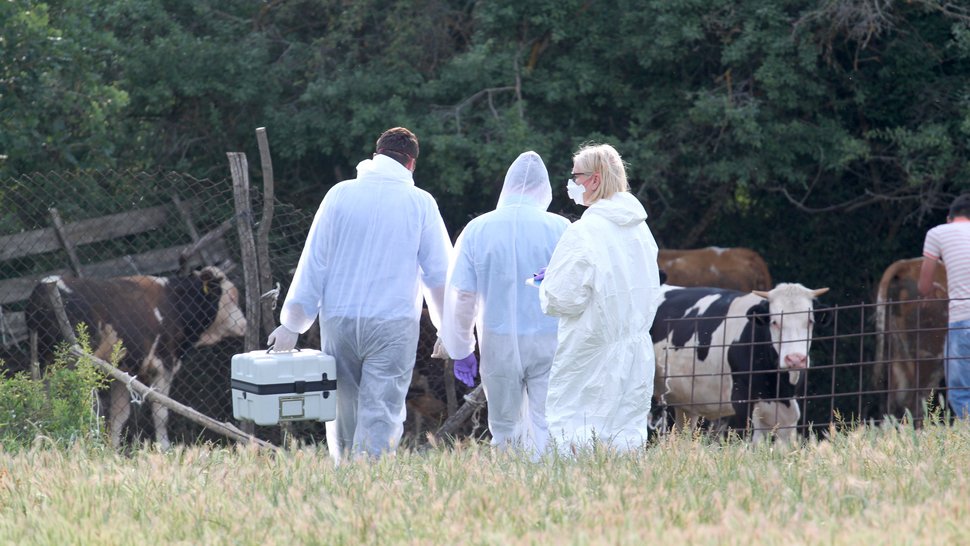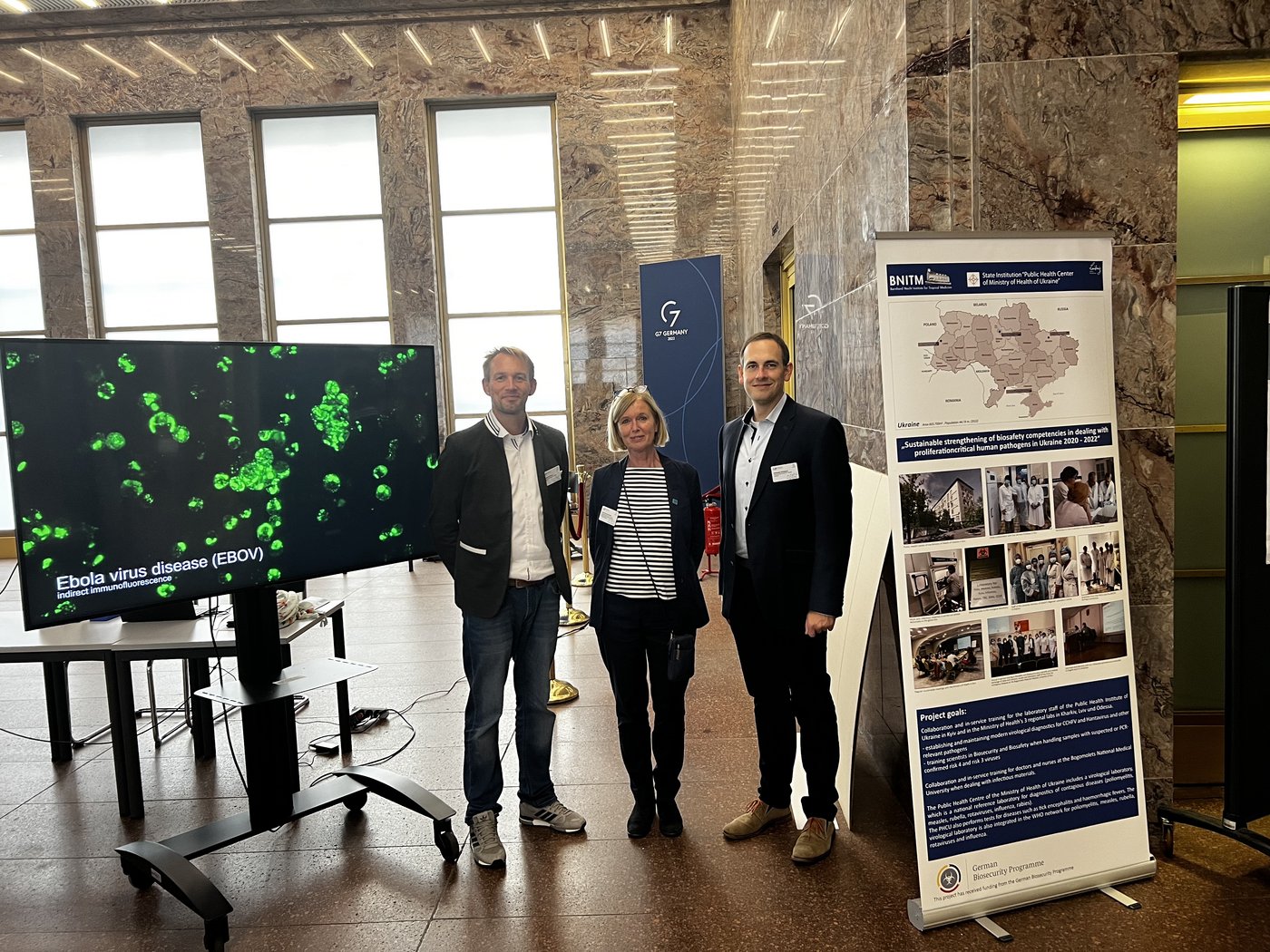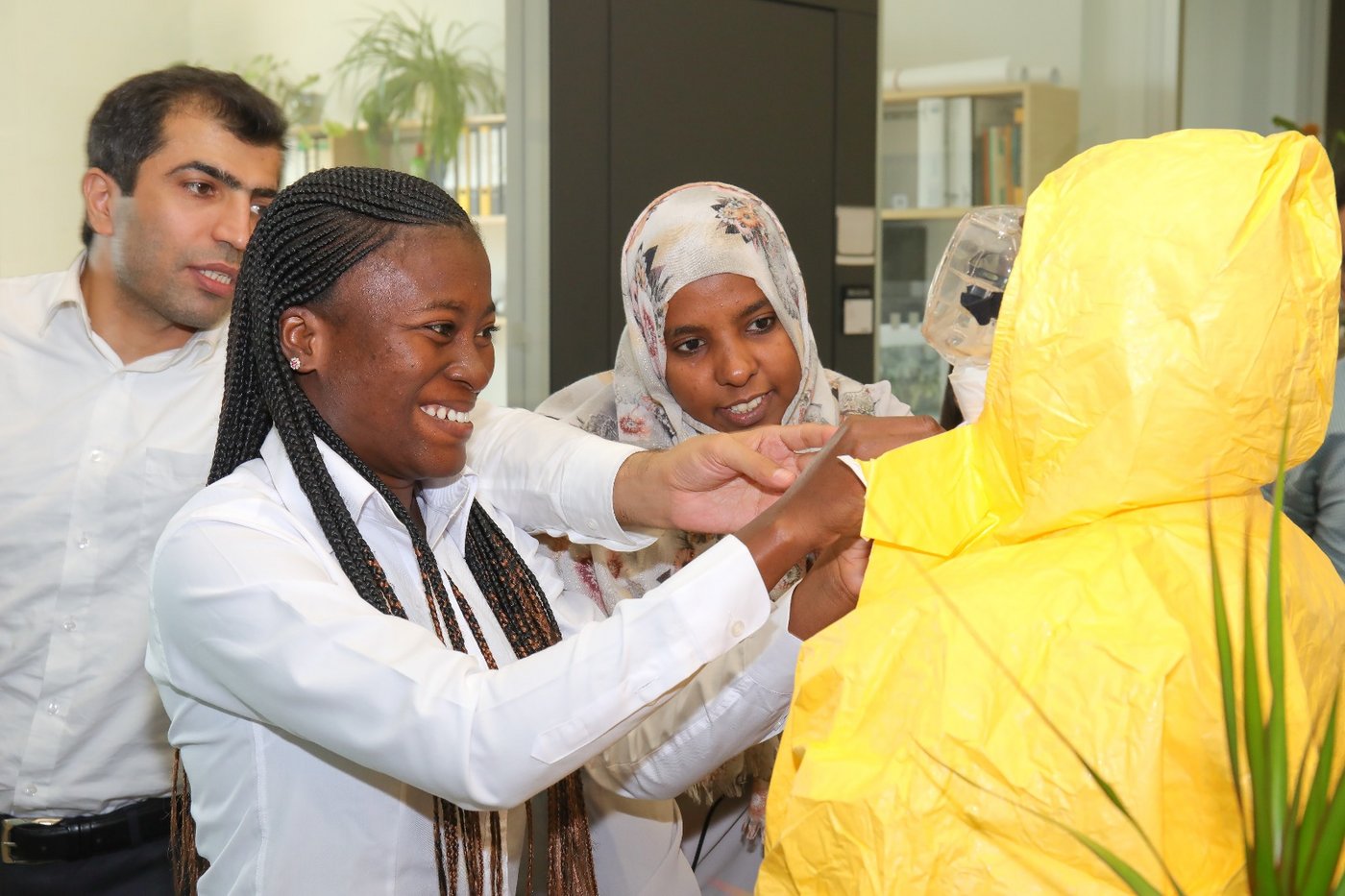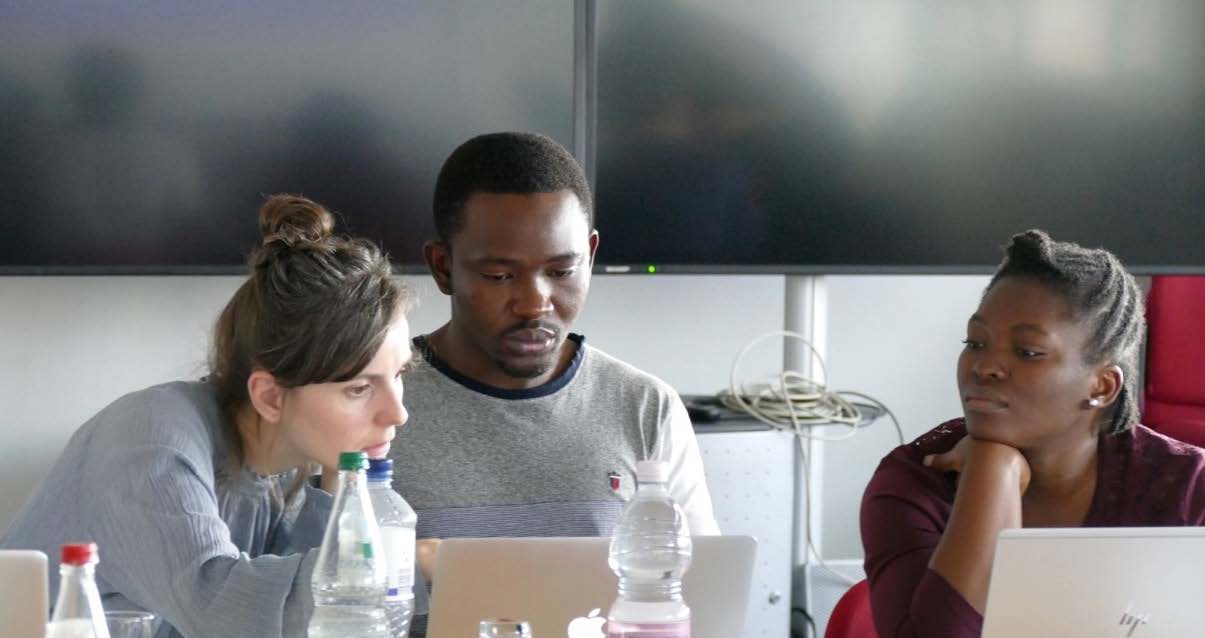Anniversary of the German Biosafety Programme
For ten years, German research institutes have been working for health and peace
The Federal Foreign Office launched the German Biosafety Programme on 01.07.2013. Since then, it has worked with partner institutions in up to 19 countries in Africa, Central Asia, Eastern Europe and the Western Balkans. The programme supports projects by BNITM, the Institute of Microbiology of the German Armed Forces, the Robert Koch Institute, the Friedrich Loeffler Institute and the German Society for International Cooperation. The BNITM has been involved from the beginning and trains experts in the participating countries.

Dangerous pathogens know no geographical or political borders. They occur naturally and pose a regional, national and international threat; this was impressively demonstrated to the world by the coronavirus pandemic. This is why continued research on these pathogens is important. However, the safe handling of viruses and bacteria of the highest security level as well as toxins is a challenge.
The Federal Foreign Office launched the German Biosafety Programme on 1 July 2013 to minimise the risk of these threats for everyone. The idea is to keep an eye on dangerous pathogens so that they do not become biological risks. To this end, the programme supports research and monitoring of pathogens and their spread. Through efficient collection and evaluation of data, disease outbreaks can be detected and combated at an early stage.
The programme brings together experts from the participating countries, promotes exchange on biosafety and creates awareness for the responsible handling of dangerous pathogens – in research and in the event of a crisis. It helps to prevent laboratory accidents and the unintentional release of dangerous pathogens (biosafety) as well as their deliberate misuse (biosecurity).
To enable the participating countries to fight disease outbreaks independently, the programme promotes knowledge about how dangerous pathogens can be reliably identified and diagnosed using modern methods and equipment. It also teaches how good communication can work in the event of a crisis.
The participating institutions work together to develop and implement guidelines and strategies in the field of biosafety, strengthen competence centres, establish training-of-trainers formats in which knowledge is passed on independently – and in this way strengthen the partners in a targeted and sustainable manner.
Projects with BNITM participation
Projects in Kosovo:
2013 - 2016 "Diagnostics and Surveillance of Crimean-Congo Haemorrhagic Fever (CCHF) in Kosovo"
2017-2019 "Diagnostics and surveillance of Crimean-Congo haemorrhagic fever (CCHF) to maintain biosecurity in Kosovo 2017-2019"
2020 "Diagnostic and clinical support in handling infectious materials and detection methods for SARS-CoV-2 and COVID-19 infections"
2023 "Diagnostics and surveillance of Crimean-Congo haemorrhagic fever (CCHF), Hanta (HNTV) and Monkeypox (Mpox) in Kosovo"
Partners:
National Institute of Public Health of Kosovo (NIPH)
University Hospital for Infectious Diseases of Kosovo
University of Prishtina, Faculty of Agriculture and Veterinary Medicine
This is what BNITM does on site:
- Training of laboratory staff in biosafety and biosecurity and in the detection and diagnosis of highly pathogenic viruses to prevent their spread
- Theoretical and practical training of hospital staff in biosafety and biosecurity in the handling of infectious patient materials
- Conducting serological and molecular genetic proficiency tests for CCHFV, HNTV and MPOXV for quality assurance purposes
- Improvement and support of diagnostics through additional equipment and materials
- Tick monitoring
- Exchange of scientists
- Joint visits and presentations at national and international congresses
Projects in Ukraine:
2016 - 2017 "Diagnostics and surveillance of Crimean-Congo haemorrhagic fever (CCHF) in Ukraine"
2018 - 2019 "Enhancing biosecurity through improved diagnostics and seroprevalence studies of Crimean-Congo haemorrhagic fever (CCHF) and Hanta (HTN) viruses in Ukraine 2018-2019"
2020 - 2022 "Sustained strengthening of biosecurity capabilities in the management of proliferation-critical human pathogens in Ukraine"
2023 - 2025 "Enhancing capacities of non-proliferation and risk mitigation of proliferation-critical human pathogens in Ukraine 2023 - 2025"
Partner:
Public Health Center of Ukraine (PHCU)

This is what BNITM does on the ground:
- Training of laboratory staff in biosafety and biosecurity and workshops in detection and diagnostics of highly pathogenic viruses to prevent their spread
- Theoretical and practical training of hospital staff in biosafety and biosecurity in the handling of infectious patient materials
- Conducting serological and molecular genetic proficiency tests for CCHFV HNTV and MPOXV for quality assurance purposes
- Exchange of scientists
- Joint visits and lectures at national and international congresses

Global Partnership Initiated Academia for Controlling Health Threats (GIBACHT)
GIBACHT is a multilateral training programme in the field of biosafety. The aim of the programme is to strengthen national capacities in disaster management and preparedness in partner countries in Africa, the Middle East and South and Central Asia. GIBACHT is coordinated by BNITM and implemented in cooperation with the RKI, the Swiss Tropical and Public Health Institute and the African Field Epidemiology Network (AFENET).
During the one-year fellowship, participants acquire theoretical knowledge through a blended learning approach, apply their new skills in simulation exercises and develop their own teaching material (case studies on disaster management of biosecurity incidents) to be used at their home institutions. This training-of-trainers concept creates a multiplier effect. The first cohort of the GIBACHT fellowship was trained in 2015, and since then 7 cohorts have been trained. In total, GIBACHT has trained more than 100 postgraduate public health professionals from 27 partner countries.
In the current programme phase, there is a strong focus on expanding alumni activities. This should strengthen the exchange between the target countries and prepare them to form regional training centres.
German Online Platform for Biosecurity and Biosafety (GO4BSB)
GO4BSB is a digital learning platform and an initiative of the BNITM together with the Robert Koch Institute (RKI), the Friedrich Loeffler Institute, Federal Research Institute for Animal Health (FLI), the Federal Institute of Microbiology (IMB) and the Gesellschaft für Internationale Zusammenarbeit (GIZ) within the framework of the German Biosafety Programme. Since 2017, the platform has served to communicate knowledge about non-proliferation, biosafety and responsible action in the life sciences, as well as to promote scientific exchange. Currently, more than 960 international users from over 50 countries are registered on the platform.

Contact person
PD Dr Petra Emmerich
Projektleiterin Kosovo | Ukraine
Phone : +49 40 285380-470
Email : emmerich@bnitm.de
Dr Eva Mertens
GIBACHT
Email : mertens@bnitm.de
Dr Dewi Ismajani Puradiredja
GO4BSB
Phone : +49 40 285380-243
Email : puradiredja@bnitm.de
Julia Rauner
Public Relations
Phone : +49 40 285380-264
Email : presse@bnitm.de







